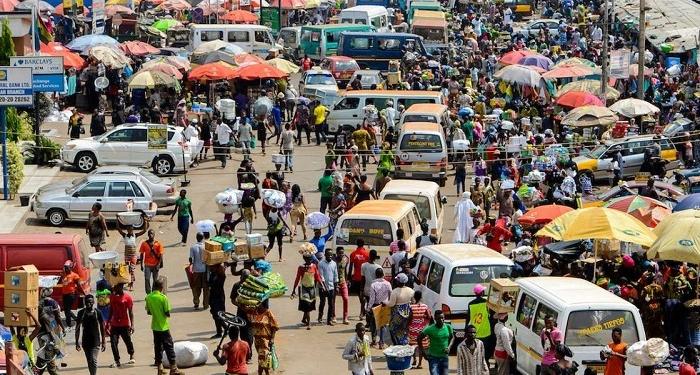RelatedPosts
Ghanaians Expect Better Infrastructure, Public Services and Jobs in Latest Report by GSS
Government Statistician, Dr. Alhassan Iddrisu, has underscored the critical role of data in shaping governance during his opening address at the 2025 African Statistics Day celebration.
Speaking under the theme, “Leveraging Innovations in Data and Statistics to Promote a Just, Peaceful, Inclusive and Prosperous Society for Africans,” Dr. Iddrisu revealed key findings from the latest Governance Series Wave 2 survey, which highlight both progress and persistent challenges in citizen engagement and institutional integrity.
According to Dr. Iddrisu, citizens’ expectations over the next six months are dominated by two main priorities. More than half of respondents (52.6%) identified improved infrastructure and stronger public services, including roads, utilities, health facilities, and schools, as the most pressing concern, while another quarter (25.9%) cited economic stability, employment, and business support.
“These two expectations alone account for nearly 80 percent of all responses,” he noted, emphasizing that while citizens increasingly feel included, significant disparities remain across groups and regions.
The survey also revealed mixed trends in governance and corruption. While overall bribery prevalence fell from 18.4 percent to 14.3 percent, the frequency of repeated gifts or payments to officials increased sharply from 6.9 percent to 24 percent. Cash continues to dominate, with more than half of respondents paying 100 Ghana cedis or less.
Direct requests for gifts from officials decreased from 51.3 percent to 38.6 percent, whereas voluntary gifts, often framed as appreciation, nearly doubled from 17.6 percent to 32.9 percent. Reporting of bribery to official or unofficial bodies, however, declined, suggesting waning public confidence in enforcement. The Motor Traffic and Transport Department (MTTD), though still the institution most associated with bribery, saw its share drop from 61 percent to 51.9 percent.
Dr. Iddrisu stressed that statistics serve as the backbone of development. “They shine a light on realities we would rather not confront and guide decisions that shape our future,” he said.
He explained that the Governance Series leverages modern technology and innovation, including the 2021 Population and Housing Census frame and Computer-Assisted Telephone Interviewing, to provide faster, more reliable, and comparable data over time. Wave 2 was conducted between 28 July and 20 August 2025, covering the period from January to June 2025, building on insights from Wave 1, which spanned January to December 2024.
As Ghana marks African Statistics Day, Dr. Iddrisu outlined five key priorities for strengthening governance: enhancing institutional accountability and anti-corruption measures; expanding civic engagement to ensure citizens’ voices shape decisions; deepening transparency and integrity across public services; prioritizing regions and groups experiencing high exclusion; and harnessing data and digital tools to drive reforms that reflect citizens’ lived realities.
The findings reaffirm the African Union’s call for fairness and justice for Africans and people of African descent, highlighting the central role of data in holding governments accountable and guiding policy interventions.










